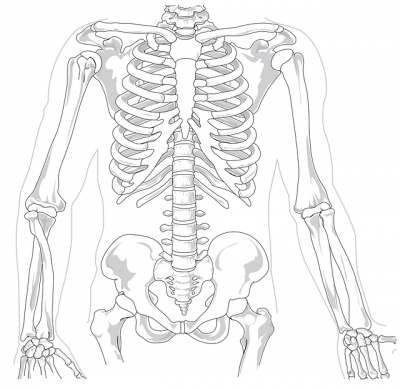Number of results 2
for calcium
21/03/2016 - Osteoporosis, bone diseases and calcium deficiency. Part II
 In the first part we described the physiological process of osteoporosis and we revealed the real causes of bone diseases. In the second part we will explain what interventions may be taken at a nutritional level and lifestyle in order to prevent osteoporosis.
In the first part we described the physiological process of osteoporosis and we revealed the real causes of bone diseases. In the second part we will explain what interventions may be taken at a nutritional level and lifestyle in order to prevent osteoporosis.20/03/2016 - Osteoporosis, bone diseases and calcium deficiency. Part I
 The main worry that comes to mind when you have an intolerance to dairy products is how you can get all the calcium your body needs.
The main worry that comes to mind when you have an intolerance to dairy products is how you can get all the calcium your body needs.We all have always been told that dairy products are essential in order to get the calcium for our bones, as if dairy was the only food that contained calcium. In the same way we are told that we need meat and fish for proteins, oranges for vitamin C, carrots for vitamin A, and so on.
But foods are much more complex than that. Every food product, including fruits and vegetables, except for refined sugar, salt and oils, contain proteins. Lots of different fruits and vegetables contain vitamin A and C. In the same way, a large list of foods contain calcium, some of them even in a similar amount as dairy products.
The total amount of calcium in a food is not the only parameter to take into account when we want to take care of our bones. Other issues are even more important: calcium absorption rate of the body; calcium availability of the food; refined-food, anti-nutrients, acid-forming food, chemicals and lifestyles that make the body loose calcium; the state of the gut flora; all the other minerals that compose the bones; studies on populations with high rate versus low rate of bone diseases, etc.
In this article we will discuss all these issues related to calcium and bone diseases.

 Gemma Calzada is a Holistic Nutritionist Ph.D. and a certified GAPS practitioner, accredited by ASCA. Her mission is to improve health through nutrition and to help people suffering from a dietary intolerance to live happily.
Gemma Calzada is a Holistic Nutritionist Ph.D. and a certified GAPS practitioner, accredited by ASCA. Her mission is to improve health through nutrition and to help people suffering from a dietary intolerance to live happily. 
